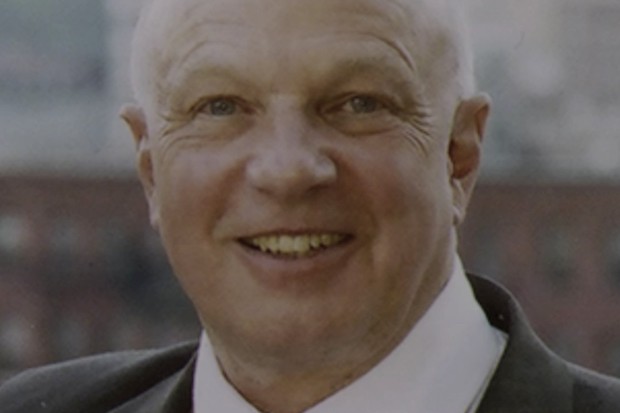Jack Wheeler Mysteriously Killed in Wilmington Delaware
On December 30, 2010, the life of John “Jack” Parsons Wheeler III came to a tragic and mysterious end. A respected figure in Washington, D.C., a decorated veteran, and a driving force behind the creation of the Vietnam Veterans Memorial, Wheeler’s death shocked both the political world and the American public. Found brutally murdered in Wilmington, Delaware, Wheeler’s case remains one of the most perplexing unsolved homicides of the twenty-first century. Despite years of investigation, countless media reports, and even renewed attention through documentaries, the truth behind his killing continues to elude authorities.
This article examines Wheeler’s life, his final days, the discovery of his body, the circumstances of his death, the investigation, and the ongoing mystery that surrounds his case. It provides a comprehensive look into the world of a man who moved in elite circles yet died under inexplicably violent and unresolved circumstances.
Early Life and Career
Jack Wheeler was born on December 14, 1944, in Laredo, Texas. He pursued an academic path that placed him among the most well-educated of his generation, earning degrees from the United States Military Academy at West Point, Harvard Business School, and Yale Law School. His career trajectory reflected a combination of military service, public policy, and civic leadership.
Wheeler served as an officer in the U.S. Army during the Vietnam era and went on to play a central role in veteran advocacy. Most notably, he helped spearhead the establishment of the Vietnam Veterans Memorial in Washington, D.C., a project that faced enormous political and cultural resistance but ultimately became one of the nation’s most visited and revered monuments.
His professional path later took him into government service at the highest levels. He worked in presidential administrations, advising on defense and policy matters, and was employed in the private sector, where he specialized in cybersecurity and related fields. His reputation was that of a principled, driven, and highly intelligent individual who bridged the worlds of military service, public advocacy, and high-stakes policy.
A Man of Influence
Wheeler’s résumé read like a map of American power and influence. He served as an aide to presidents Ronald Reagan, George H.W. Bush, and George W. Bush. His work touched upon military strategy, defense technology, and veteran affairs. He also served as a consultant and executive on corporate and non-profit boards.
He was known among friends and colleagues as both brilliant and intense, a man capable of bringing people together around difficult causes. The Vietnam Veterans Memorial was perhaps his proudest accomplishment, a testament to his ability to navigate bureaucracy, politics, and public opinion to achieve something lasting.
Yet, Wheeler’s life was not without personal complexity. He could be driven to the point of obsession, passionate to the point of conflict. Those traits that made him effective in advocacy also made him unpredictable in other settings. These contradictions would later color the mystery of his death.
The Days Leading Up to His Death
The final days of Wheeler’s life were marked by behavior that those who knew him described as uncharacteristic. He was seen in various locations around Wilmington, Delaware, often appearing disoriented and distressed. Surveillance cameras captured him wandering through office buildings and parking garages. Witnesses recalled that he seemed confused, tired, and in some cases, disheveled. On one occasion, he was spotted carrying only one shoe, a detail that became a haunting symbol of his final hours.
At the same time, Wheeler was reportedly dealing with personal and legal disputes. He had been engaged in an ongoing disagreement with neighbors over construction issues near his home in New Castle, Delaware. Days before his death, smoke bombs had been set off at the site, further inflaming tensions. Whether this dispute was in any way connected to his murder has never been established, but it added a layer of intrigue to an already puzzling narrative.
December 30, 2010: The Last Sighting
The last confirmed sighting of Wheeler was on the evening of December 30, 2010. Security footage from a Wilmington parking garage showed him wearing a dark blazer and light-colored pants. He appeared disoriented, pacing and at times looking around nervously. Despite the unusual behavior, he did not appear to be fleeing from anyone. These final images remain among the most analyzed pieces of evidence in the case.
By the early hours of December 31, 2010, Wheeler would be dead. The precise circumstances of what happened between his last sighting and the discovery of his body remain unknown. Investigators have never publicly revealed where the fatal assault took place.
The Discovery of the Body
On the morning of December 31, 2010, workers at the Cherry Island Landfill in Wilmington, Delaware, made a gruesome discovery. Amidst refuse dumped from a Newark, Delaware dumpster, they found the body of Jack Wheeler. He was still wearing some of his personal belongings, including his West Point class ring and Rolex watch, suggesting robbery was not the motive.
An autopsy revealed that Wheeler died as the result of blunt-force trauma. His death was ruled a homicide. Investigators believed that his body had been placed in a dumpster in Newark, which was then emptied into a garbage truck and transported to the landfill. This grim chain of events complicated the investigation, as the landfill environment destroyed much potential evidence.
The Investigation
The Newark Police Department took the lead in the case, since the dumpster that contained Wheeler’s body originated in their jurisdiction. The FBI and other agencies also assisted. The investigation faced immediate challenges. The landfill setting contaminated evidence, and Wheeler’s strange behavior in his final days left authorities with more questions than answers.
Investigators explored multiple possible motives. These included personal disputes, random violence, robbery gone wrong, or even retaliation connected to Wheeler’s past government work. Yet no definitive link was established to any of these theories. Interviews with friends, family, and associates provided context but not closure.
The presence of personal items on his body complicated the robbery theory. The lack of obvious enemies or financial motives complicated theories of personal vendettas. His high-level government work led some to speculate about conspiracies, but no evidence emerged to support such claims.
Media Coverage and Public Fascination
From the moment his body was discovered, the case of Jack Wheeler drew national attention. Media outlets highlighted the shocking contrast between Wheeler’s distinguished background and the grim circumstances of his death. The fact that he had served presidents and worked on high-level defense projects only deepened public fascination.
In the years that followed, the case was revisited by news programs, investigative journalists, and even the Netflix series Unsolved Mysteries. Each retelling brought new attention but no new solutions. The enduring mystery of Wheeler’s final hours became a symbol of how even the most prominent figures can meet tragic and inexplicable ends.
Theories and Speculation
Numerous theories have emerged over the years. Some argue that Wheeler may have been suffering from a medical or psychological crisis that left him vulnerable. Others suggest that his government connections may have placed him in danger. Still others believe that his neighborhood dispute could have escalated beyond control.
The lack of arrests or public suspects leaves the door open to all possibilities. Authorities have never disclosed many details of the investigation, citing the need to protect the integrity of the case. This secrecy has fueled speculation but has also kept the case frustratingly stagnant.
The Legacy of Jack Wheeler
Jack Wheeler’s life was one of service and impact. He left behind a legacy of advocacy for veterans, a memorial that continues to honor those who served in Vietnam, and a record of public service at the highest levels. His death, however, remains a tragic reminder of life’s fragility and the unsolved mysteries that still haunt modern society.
For his family, friends, and the countless veterans he supported, the lack of resolution is painful. More than a decade later, his murder remains unsolved, with no public indication of closure on the horizon.
Conclusion
The murder of Jack Wheeler on December 30, 2010, in Wilmington, Delaware, is a case that embodies both tragedy and mystery. A man of great accomplishment, who navigated the halls of power and left a lasting mark on American history, died under circumstances that defy explanation. Found in a landfill, beaten to death, Wheeler’s final hours remain shrouded in uncertainty.
As time passes, the chances of solving the case may diminish, but the memory of Jack Wheeler’s life and contributions endure. His story stands as a haunting reminder of the unresolved questions that persist even in a world of advanced technology and intensive investigation.
Discover more from City Towner
Subscribe to get the latest posts sent to your email.




